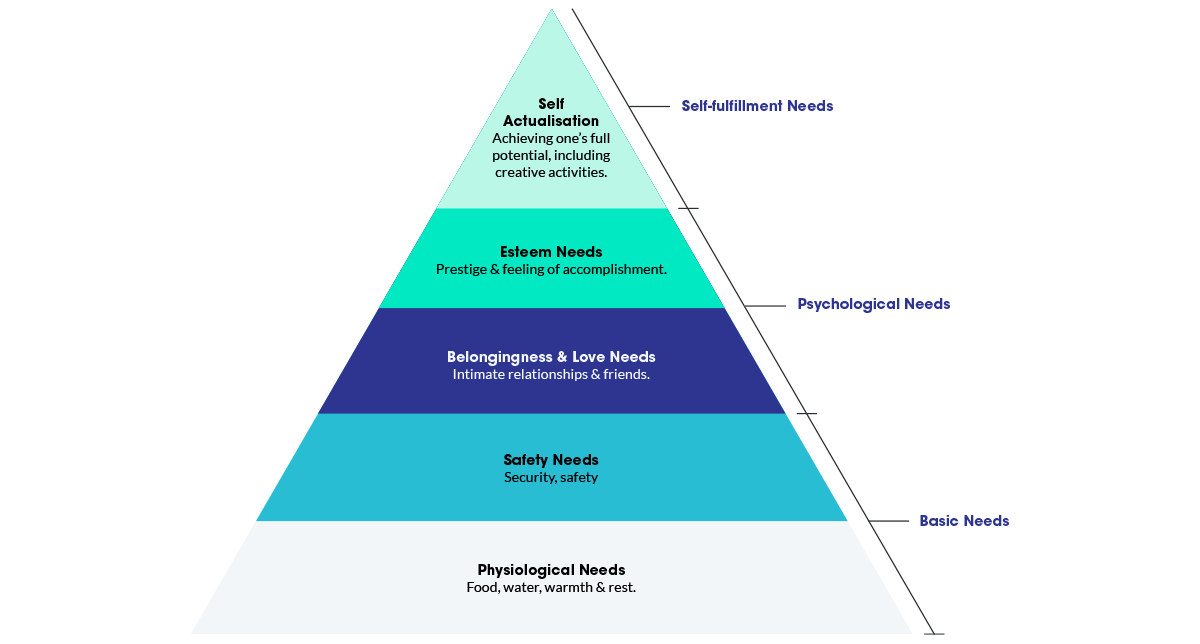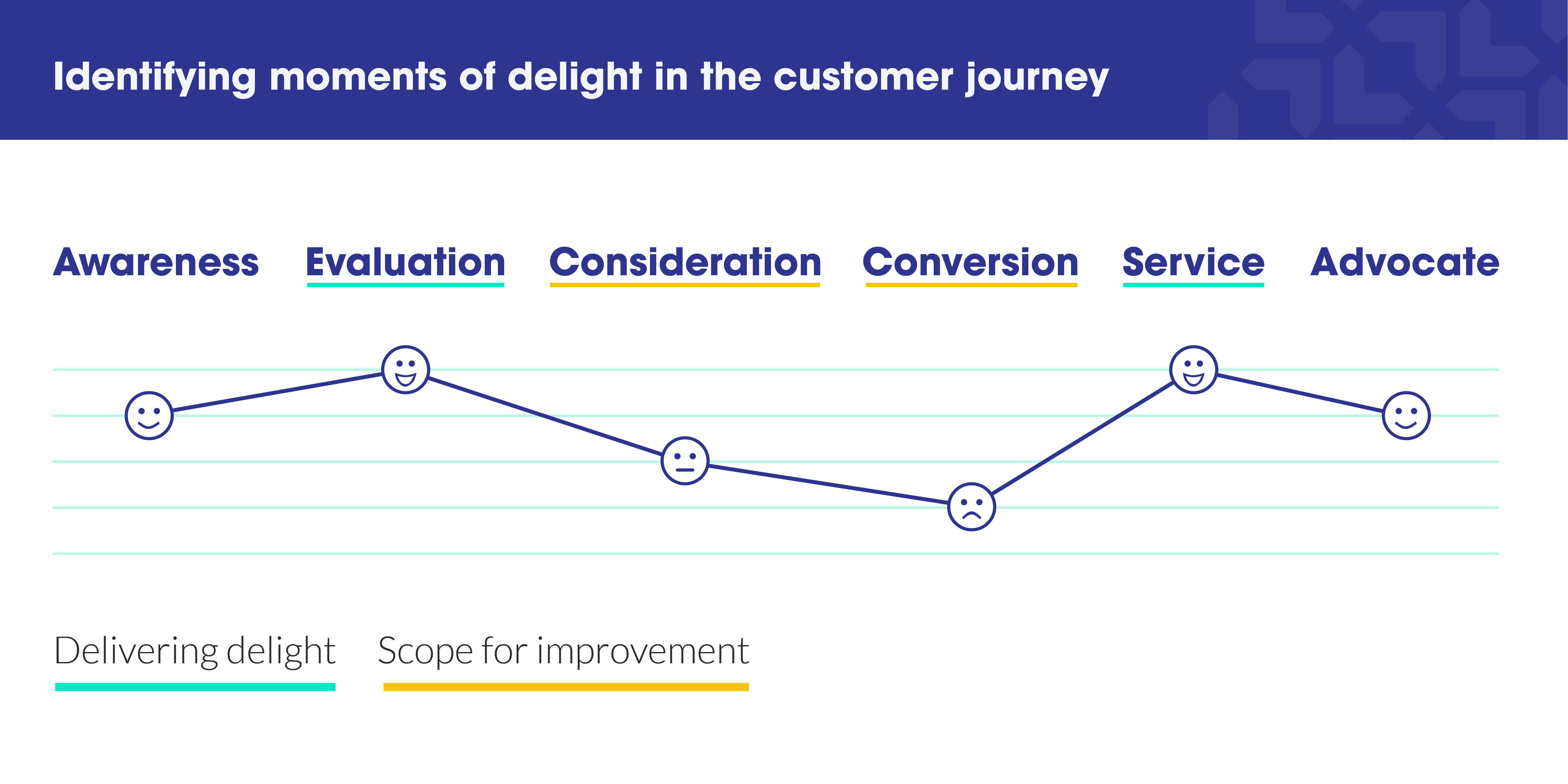Your customers’ basic needs are crucial right now. To meet them, your retail business needs to understand customers as human beings and evolve experiences beyond functional transactions to empathetic engagement.
“Customer behavior is evolving faster than ever.” You’ve probably heard this a lot already, and know that this new reality will continue in 2021. Consumers’ needs are radically changing and their expectations for digital experiences are growing. But, because of the pandemic, the types of changes we’re seeing are coming from an unexpected psychological place. The stresses and strains of isolation and lockdown have heightened our basic, core needs in ways that we haven’t considered yet.

Self-fulfillment is out the window. Right now, folks are focused on survival. Parents are juggling at-home work with at-home schooling, and people at greater risk are navigating the maze of how to live their life while protecting themselves and their families. To meet basic needs – food, water, shelter – it feels like we risk our sense of safety and belonging. The brutal impact of this new stress has sunk into every area of our lives. Our fight-or-flight responses have been firing for the last 12 months straight (and counting…).
This means people aren’t comfortable, they aren’t thinking rationally, and they’re having greater and greater difficulty envisioning their futures. The tug-of-war between elementary survival and feeling that our basic psychological needs are fulfilled has manifested in a deep, all-encompassing, and new modern need:
Empathy.
The new normal decision-making
Remember a year ago when we were expecting mere weeks of lockdown and predicting “the new normal” left and right? At Appnovation, we did it, too. That was the mood at the time: that this unbelievable situation couldn’t possibly stretch out to the summer…or to the holidays…or, unthinkably, to 2021.
We know now that it did. And it still is.
There is no normalcy right now — new, next, or otherwise — and it’s from that glaring lack of security that your customers are now making very emotional decisions. They crave safety and security. More than ever, they don’t want to just see commercial value in your product but to feel valued as a human being. Anything you can do now to not only address their transactional needs but to show that you understand and anticipate their associated emotional needs, will not just show but prove that you’re worthy of loyalty.
Through the initial stages of the pandemic, 4 in 5 consumers expected brands to adopt digital solutions to serve them better. If your consumer journey isn’t human-centered, now is the time to fix that. Brands need to lead with empathy, not technology. Above all, companies should be connecting the dots to ensure that all of their consumers’ needs — including emotional and psychological — are being met at every stage of the customer experience.
Transactional thinking isn’t enough to win trust anymore
Earning trust is the foundation of a long-term relationship with your customers. This year of ongoing health and social crises has fundamentally shifted the core of what your audiences need to feel from you to give their trust in return — and you might not even be aware of it.
- The new customer charter
In the 2021 Trend Report: Trust & Trauma, Dentsu explains, “a more genuine ‘customer-first’ approach has emerged with them controlling the brand relationship.”
This means that audiences are not only more willing than ever to ditch your brand for someone who gives them what they want, but that they expect you to meet both their transactional and psychological needs. They want to be understood, to gain a sense of ease, and for you to be fair. We know that people need to buy “things” and for a brand to be honestly and clearly selling a product is fine. What needs to be added is a layer of psychological comfort and awareness on top of that sales process.
- More content doesn’t mean more understanding
Consumption of digital content is through the roof for obvious reasons. During lockdowns and isolations, people are accessing far more online content than before.
That sounds great at first, but you need to be aware of two key things:
- The rise in digital content consumption isn’t necessarily by choice
- Readers are far more sensitive to disingenuous and thoughtless content
Content is a “quality over quantity” game even in a normal year. Right now, audiences are far less willing to overlook a badly timed joke or any approach that unintentionally makes light of their circumstances.
These are serious times, and thinking that churning out more content just to get your share of digital views could be disastrous. Unless you’re publishing strategic, personalized, and empathetic content — with your readers’ goals in mind first, and your business goals seconds — you’re setting yourself up to fail.
How design thinking ensures empathy
At its core, design thinking begins with empathy. When you approach research from a technological and psychological lens, you ensure you know what they need emotionally. This is how you unlock the possibilities for moments of delight alongside having the right tech to get the job done at the right time.
With design thinking, the focus is where it should be: on your customer.
Right now, people want ease and emotion. The technology that empowers personalization needs to work seamlessly, but it’s not enough to stand alone. A design-thinking approach can strategically unlock the emotional layer you need to marry to your tech.

Appnovation’s approach to design thinking uncovers the human-centered experiences that are key to creating meaningful interactions with customers, understanding how to make their life easier, how they use the technology, and how to create a better, more meaningful experience for everyone, especially in extraordinary times.
Ready to unlock your customers’ psychological needs with human-centered design thinking? Get in touch.


